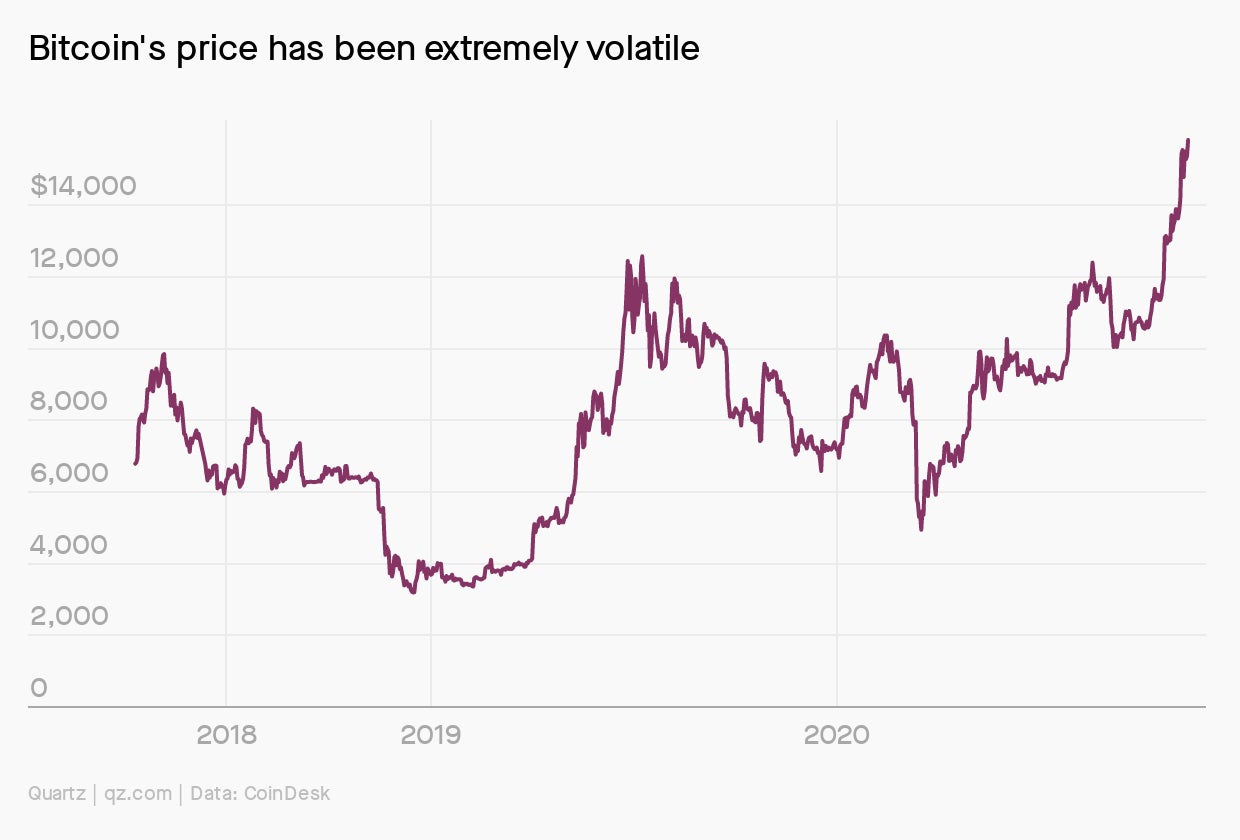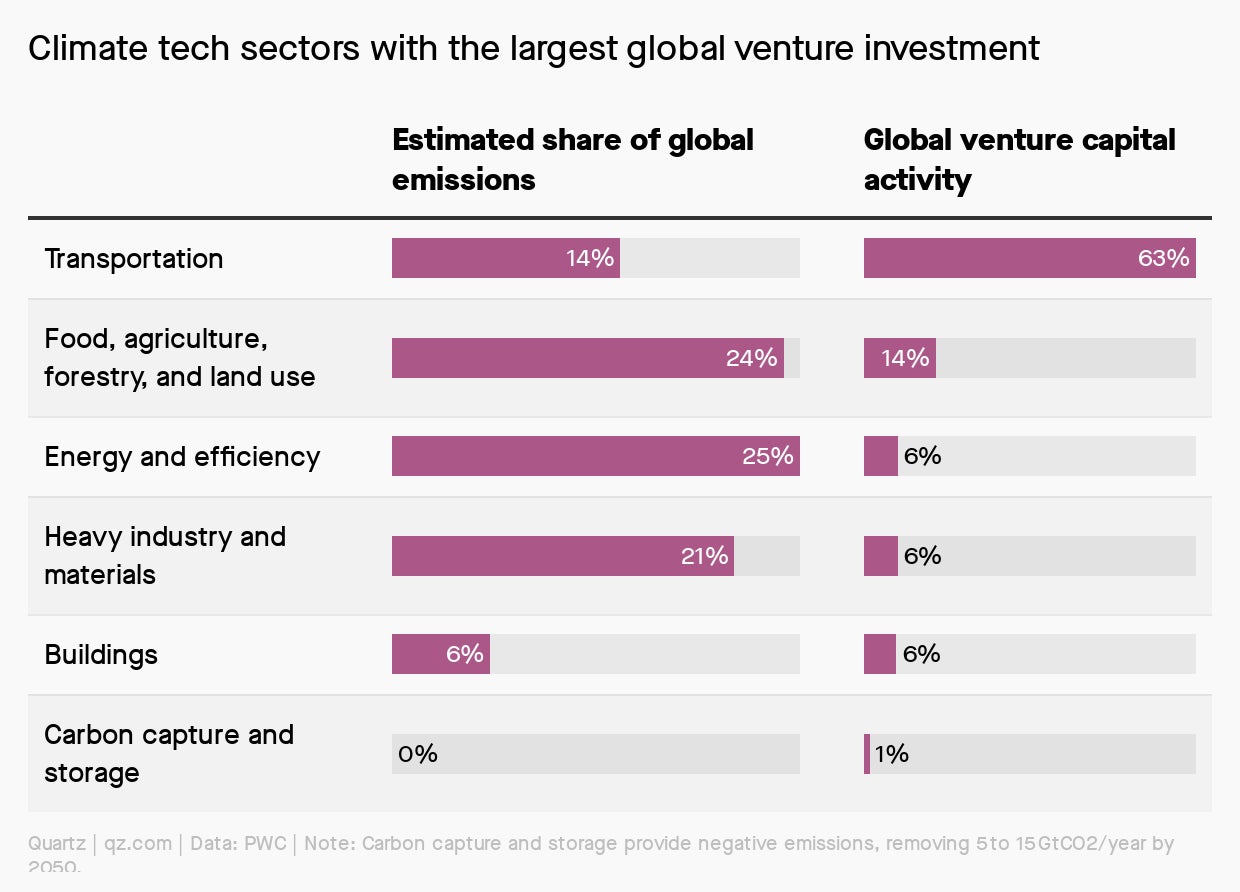Biden’s first priority, bitcoin vs. gold, giant gator
Good morning, Quartz readers!

Good morning, Quartz readers!
Here’s what you need to know
Covid-19 continues to surge across the US. A record 160,000 new cases were reported yesterday, just eight days after the 100,000 barrier was broken. Not a single state is seeing a decline in cases, but the Great Lakes region is the worst affected. A national lockdown is unlikely, says Dr. Anthony Fauci, the top infectious disease expert in the US.
China finally acknowledged Joe Biden’s election victory. “We respect the American people’s choice,” said a spokesman. “We congratulate Mr. Biden and Ms. Harris.” Meanwhile, all the election decision desks have now called Arizona for Biden, a week after Fox—which reportedly infuriated president Trump—and AP did so.
A major Asian trade pact is almost in place. The 10 members of the Association of Southeast Asian Nations (ASEAN), plus China, Japan, South Korea, Australia, and New Zealand, are set to sign off on a free trade zone that’s larger than both the US-Mexico-Canada Agreement and the European Union.
TikTok survived in the US. Pending the results of legal challenges, the US commerce department announced that it would not implement an order that would have effectively banned the video app. Meanwhile, the Trump administration will prevent US investment in Chinese companies with military ties—unsurprisingly, the list includes Huawei.
Sony released a new PlayStation. The highly anticipated console was only available online through a handful of retailers’ websites. Pandemic-driven demand was so high that eager buyers crashed Walmart’s entire web store.
Charting bitcoin’s volatility
Since the spread of Covid-19 in India, bitcoin has outperformed every other asset class, including gold, giving a return of nearly 160% since April. Hindus consider the festivals of Dhanteras (Nov. 13) and Diwali (Nov. 14) auspicious for buying gold, and bitcoin’s returns have enthused some Indians so much that they’re shopping for bitcoin instead of gold this festive season.

Though bitcoin is faring better than gold as the economy struggles through a difficult year, cryptocurrencies are famously volatile, and are unlikely to replace the typical steadiness of gold anytime soon.
Catnip for environmental investors
“Climate tech” in a startup description is what “bitcoin” or “AI” were a few years ago: irresistibly attractive to investors interested in the space. Opportunists eager to make a quick dollar will follow as the money and attention grows, but success won’t come easy.
Quartz summarized the landscape for climate tech in Silicon Valley and around the world. Investors, burned by expensive failures during the first clean tech boom between 2006 and 2011, are returning to cheaper startup and scaling costs and a growing expected market.

We’ll break down those sectors and tell you about 87 startups to watch in our guide to climate tech’s second shot.
✦ It’s Members Week! We’re celebrating two years of Quartz membership, and we’d like to invite you to invest in your future reader satisfaction at 50% off, using code MEMBERSWEEK. (This offer does not apply to Quartz Japan memberships.)
You asked about polls
Why do US election polls keep getting it so wrong?
Less than a week ahead of the election, polls indicated Joe Biden would carry key swing states such as Florida and Ohio by six and four points respectively. In the end, Trump won Florida by 3.4 points and Ohio by 8.2 points. Polls were even more inaccurate for other races.
We were struck by the parallels between overconfident polls and overconfidence in human judgment. When asked to report an uncertain answer to a question using a 95% confidence interval—that is, to provide a range which they think has a 95% chance of containing the true answer—people’s intervals routinely contain the truth less than 50% of the time. (Quartz recently built a tool that lets you test your own overconfidence using this method.)
The last two presidential elections are not exceptional: polls are almost as consistently overconfident as individuals are. Aditya Kotak and Don Moore took a close look at the data.
As Covid-19 cases jump, we’re turning our Q&A attention back in that direction for next time.
Make business better with Quartz
Join our CEO Zach Seward on LinkedIn Live for a high-paced weekly discussion with next-gen business leaders on how they’re making business better in their own organizations. The series starts on Nov. 17—be sure to follow Quartz and Zach on LinkedIn to receive reminders.
Surprising discoveries
A giant gator was spotted in Florida amid tropical storms. The mighty animal wandered around the grounds at a golf club.
The Friends reunion is scheduled for March. Could Matthew Perry be any clearer?
A museum thanked John Waters by naming a pair of bathrooms after him. The Baltimore Museum of Art said the Hairspray director specifically requested the honor.
A presidential decree saved a Nairobi fig tree. The century-old tree, a beloved landmark of Kenya’s capital city, was in danger of being felled for a Chinese-funded highway.
A Roman vault stores thousands of pieces of stolen art. The facility acts as a halfway house for pieces seized by police but not yet returned to their rightful owners.
Our best wishes for a productive day. Please send any news, comments, a famous toilet, and an art collection to [email protected]. Get the most out of Quartz by downloading our iOS app and becoming a member. Today’s Daily Brief was brought to you by Hasit Shah, Jane Li, Tripti Lahiri, Liz Webber, and Susan Howson.